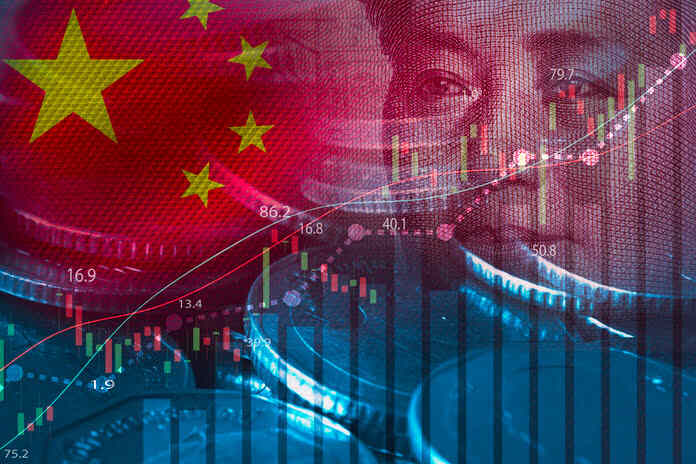China’s Shanghai Composite Stock Index showed signs of recovery, closing slightly higher after reaching a 3-1/2 year low. The rebound followed reports from Bloomberg revealing that China is exploring the issuance of 1 trillion yuan ($139 billion) in special sovereign bonds as part of additional stimulus measures. This marks only the fourth such sale in the last 26 years, underscoring the urgency of Chinese authorities to secure funds for revitalizing economic growth.
Stimulus Plan Details and Rare Bond Sale
The proposed plan, discussed by senior Chinese policymakers, involves the sale of long-term sovereign bonds to finance projects related to food, energy, supply chains, and urbanization. Such bond sales are uncommon, with the last occurrence in 2020 when 1 trillion yuan of sovereign bonds was issued to address pandemic response needs. This move highlights the gravity of China’s current economic challenges, including the ongoing property crisis, deflation concerns, and subdued domestic demand.
Shift in Spending Responsibility and Long-Term Impact
The new stimulus initiative marks a shift in spending responsibility from debt-laden local Chinese governments to the central government, aiming to alleviate financial burdens hindering various stimulus measures. Long-term sovereign bonds, designed to be repaid over several decades, provide flexibility and reduce immediate repayment pressures. While Goldman Sachs acknowledges that such bonds may not solve all fiscal challenges, they see it as a likely toolkit for fiscal easing in 2024.
Government’s Fiscal Strategy and Deficit Concerns
In October 2023, China’s legislature approved a plan to raise the fiscal deficit ratio for the year to about 3.8% of gross domestic product, surpassing the 3% set the previous March. This plan included the issuance of an additional 1 trillion yuan in sovereign debt in Q4, primarily for disaster relief and construction. Despite the ballooning budget deficit, China’s Finance Minister Lan Fo’an assures that the debt ratio remains within a “reasonable range.” Officials emphasize the importance of judicious spending to address immediate needs while preserving resources for potential future challenges.
Market Expectations and Premier Li’s Cautionary Note
However, there is a note of caution from Chinese Premier Li, who tempered expectations by stating, “In promoting economic development, we did not resort to massive stimulus.” This statement may leave markets disappointed, suggesting that while additional stimulus measures are in play, the government remains mindful of avoiding excessive interventions.
Conclusion: Balancing Stimulus and Prudent Economic Management
China’s contemplation of a substantial stimulus package through rare long-term sovereign bonds reflects a proactive approach to tackling economic headwinds. As the nation grapples with property challenges and deflation fears, balancing the need for immediate economic support with prudent fiscal management remains a delicate task for Chinese authorities. The impact of these measures on China’s economic trajectory will be closely monitored, especially with Premier Li’s emphasis on avoiding excessive stimulus in the pursuit of sustainable economic development.
Featured Image: Freepik









